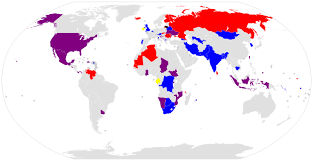
Article 14 is considered to be one of the most important pillars of the Indian Constitution. It is popularly known to us as Equality before law. So, let us look into a question whether Article 14 itself is supreme or does it prevent the Government from not making other laws which may violate the so-called Equality. Article 15 and 16 follows with further classification and clarity.
Quoting the article 14-
The State shall not deny to any person equality before the law or the equal protection of the laws within the territory of India Prohibition of discrimination on grounds of religion, race, caste, sex or place of birth.
Article 14 came into a hype during the CAA protests when critics quoted it multiple times. While the defenders of CAA multiple times repeated that there is no violation of Article 14.
The main essence of this article is not the article itself but the idea of what do you mean by the term "Equal".
Mathematically or scientifically we can say those with the same value or measurement. This doesn't apply to abstract concepts like Human Being, how are two individuals equal?- is it by their figure of income, measurement of his house or even by the measurements of his body like height, weight etc.
Social Science looks into demographics like Race, Caste, Religion, Gender, etc while economics will look for Income, Assets, Loans etc and a Lawyer on what all laws he follows or violates etc.
As per Law "Equal" stands for things which are equally placed or people who are similarly placed.
Take an example of Lion and the Mouse. The story where the lion was caught in the hunter's net. The lion and mouse can never be compared or taken as equal just because they are animals. Lion and mouse cannot be given the same of abilities. So they both can never be considered equal. But, a lion can be compared with others in the cat family like tiger, cheetah and leopard. So, is a mouse can be compared to other rodents like hamster, rat, beaver and rabbit.
So we conclude that equality is the test of likes. The likes between the two can be equated and their unlike can never be unless there is a mechanism of external support.
Few instances where Article 14 was under a question...
CAA
Was CAA a violation of Art 14 because it excluded Muslims? No, because it didn't exclude Muslims in the first place. There is no violation of Article 14 also because only 3 countries were included cause there is actually no description where the law states on what basis was the countries selected. This is known as reasonable classification where the law distinguishes between the exclusions and inclusions of entities depending on the logic.
The only potential question of violation of Art 14 arises only in the clause where there is an exemption from the Foreigners Act and Passport- Entry to India act. CAA which provides an exemption from both fails to explain how only these 6 religions from these 3 countries have something different than the other.
Making that clear- What special does a Hindu from Bangladesh have different from Hindu came from Sri Lanka and is surely a tricky question.
SC/ST Reservation
This is neither unconstitutional nor it violates article 14. Why? Just as mentioned before, we know that few communities especially the lower castes have faced discrimination for quite a long time. Thus in no way, we can consider them to be equally placed with the upper castes. So a mechanism named reservation is kept to create equal representation. The Parliament of India approves the reservation to be extended, every 10 years and nobody questions them.
Minority Rights
Any group or community numerically small is called minority. In most countries, there are special rights for minorities. You have it in India, Pakistan, Bangladesh, USA, Canada or anywhere else. You also have special criminal laws which can prosecute you for persecution and discrimination of minorities in particular. The main reason for these is for their physical and social protection and to keep them safe. To stop the dominance of the majority against the minority. Also, to maintain and support their cultural and educational rights. The biggest trigger point of creation of this section was the tyranny against the Jews in various parts of Europe.
Women's Rights
Men and women are equal. Sounds great to everyone, but the reality is that women face more discrimination everywhere. To support them and bring them up, we have Women's rights. This includes incentives on education, health, liberty etc. You can't argue that women should be treated as same like Men and they don't deserve the same rights.
Child Rights
It is more of a universal concept where a child is given more importance than an adult. Children are more susceptible to various forms of atrocities and torture which adults generally don't face. Most of the children even don't know that they are being misused or ill-treated. For that reason you have child rights, you have the right against exploitation, laws against child labour, right to education, POCSO, etc.
Article 370 and Article 371
Both these articles give specific privileges to people living in the regions specified in the article than people living outside those regions. This is doesn't violate equality principles cause these places have history, society and politics different from others. Like Kashmir had a totally different background from many other states, similarly, you have the North East. Constitution by default accommodates these differences.
Every time any political party says one nation one law, please understand that such a concept doesn't exist. There are a lot of subjects which empowers the States to make their own laws and differ from state to state. These also don't anyway violate anything like Article 14. You can't say people of Arunachal have more rights than people of Kerala.









Comments
Post a Comment